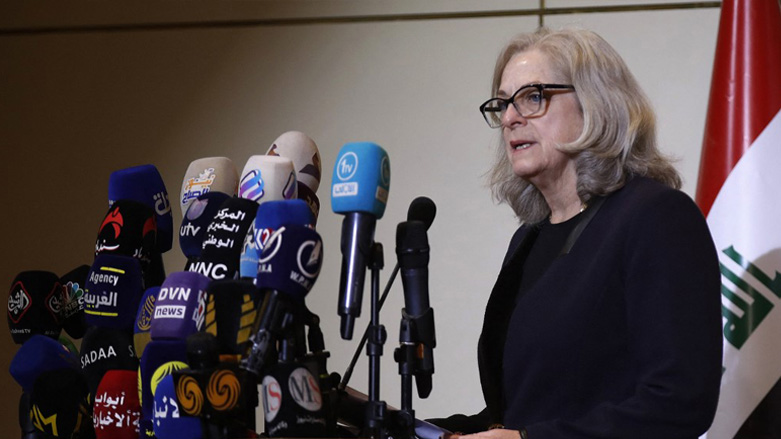US, Canada ready to work with Iraq to tackle gas flare, say top diplomats

ERBIL (Kurdistan 24) – To tackle its environmentally-polluting gas flare, the United States and Canada are willing to help Iraq by investing in gas capture technology in order to boost power production and reduce the adverse health implications of the emissions, the two countries’ ambassadors said on Saturday.
The remarks by US Ambassador to Iraq Alina L. Romanowski and Gregory Galligan, the Canadian envoy to Baghdad, came during the second Oil and Gas Show conference in the Iraqi capital.
“After Russia, Iraq is the highest emitter of flared gas in the world,” the US diplomat said, explaining the range of the health and environmental consequences as well as the economic loss the country is suffering as the result of the emission.
By investing in gas capture technology, Iraq could double its power generation by producing an additional 3,500 megawatts to the grid, Romanowski said.
In order for the country to be able to develop its energy sector, it has to cut red tape, boost transparency and make a friendly business environment, so it can attract foreign direct investment, she added.
“American companies are ready to invest and participate in modernizing Iraq’s energy sector,” the US envoy said.
The giant US power company, General Electric (GE), signed a memorandum of understanding with the Ministry of Electricity to develop the national grid by boosting production, maintenance, staff training, and streamlining transmission on Thursday.
“Canada is ready to work with Iraq to tackle [gas] flaring in a way that generates new sources of revenue and contributes to protecting the environment,” the Canadian ambassador said.
Iraq flares around 16 billion cubic meters of gas on daily basis. If captured, the gas could potentially power around three million homes, according to a World Bank report.
In the absence of the technology to separate and process its natural gas, the country relies heavily on imported Iranian gas to power its electricity grid.
The Iraqi residents living nearby the oil fields have complained about the rise of leukemia cases in their communities, blaming the spread of the disease on the toxic emission, according to a BBC investigative report in 2022.
The Iraqi electricity infrastructure suffers from decades-old negligence, corruption, and underinvestment, resulting in frequent power outages, particularly during the scorching summer heat.
